5 Must-have Abstracts for Your Game Shelf
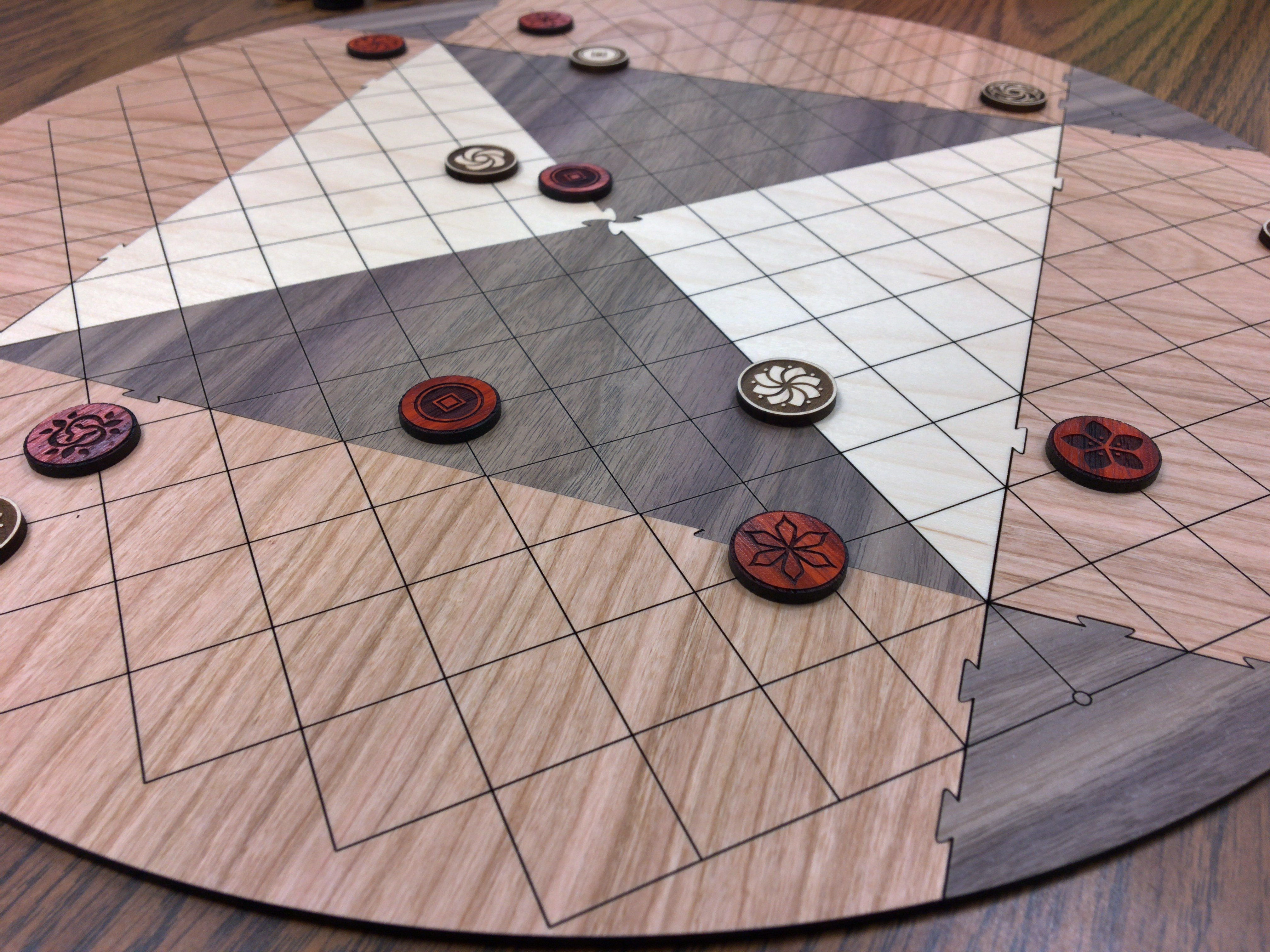
I originally posted this article on A Pawn's Perspective on October 2, 2020
There’s something special about a good abstract strategy game where you strip away everything else, and mechanics are the core focus. These games have a beauty lie in how you play them, not how they look. Some have a starkness to them. Others have thinly pasted on themes, but their true nature shines through upon your first play of them. I’ve played a ton of such games over the years, and I’ve come across some real gems worthy of shelf space.
However, before I start, keep in mind that I’m intentionally leaving classics like Chess, Go, Shogi, and others off this list due to the exposure they already have with casual and hardcore gamers alike.
Zendo
The oldest game on the list, Zendo was originally published in issue #14 of a physical newsletter Looney Labs put out called Hypothermia back in July 2001. Using 3-4 stashes of Looney Pyramids, some counters, and rule cards, the game was later published in its own boxed set in 2003. In 2017 an upgraded, standalone edition was released containing three different shapes to build with.
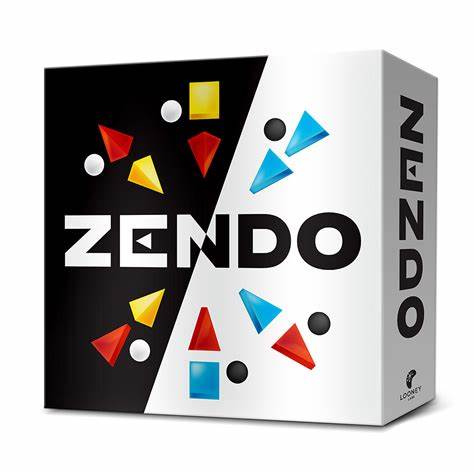
The closest game comparison I can make to Zendo is Mastermind, though it’s not quite right. A game of Zendo has a moderator build a structure following a specific rule. The players then need to develop their designs to try and figure out the rule. It’s a straightforward core mechanic that gets brain-burning pretty fast.
The 2017 version of the game is incredibly easy to find on store shelves or online. If you’ve got some stashes of Looney Pyramids, you can still grab everything needed to play the original version here. Both are great ways to play the game, even if my heart still lies with the 2003 boxed set.
Tak
Tak is an exciting addition to this list as the game existed in fiction before becoming a real, tangible game. Initially mentioned in book two of Patrick Rothfuss’ Kingkiller Chronicles, The Wise Man’s Fear, in 2011, James Ernest of Cheapass Games worked with Rothfuss to make the game a reality in 2016. Such a fantastic job was done with the game, prompting the formation of the US Tak Association, various upgrades for game pieces, and even beautifully crafted Tak sets by Wyrmwood Gaming.
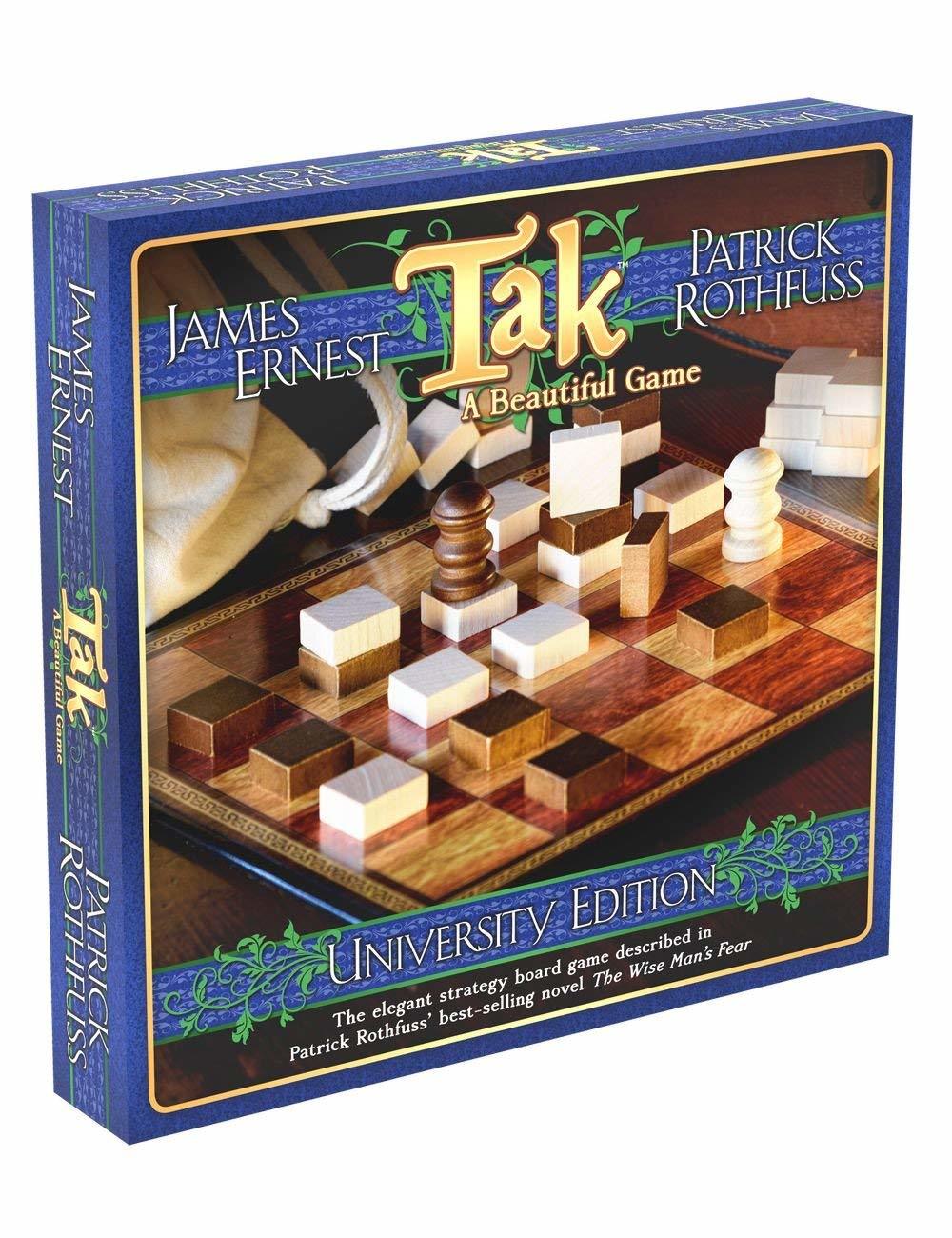
Tak is a great example of taking a set of simple, elegant rules and letting them shine on their own. Players take turns placing/moving their pieces on the board trying to create a “road” from on end of the board to its opposite. There are ways to block your opponent and even create stacks of pieces. It’s elegant, can play on various sized boards, and can be purchased inexpensivly or decked out with as much luxary as a person desires. It’s a baby in terms of many classical abtracts, but has staying power to become a classic in its own right.
Onitama
Arcane Wonders’ Onitama is the only game on this list with a real theme to it. Players take the role of a Master and their monk followers facing off against a fellow Master and their monks. You win if you can take your opponent’s Master or if one of your pieces occupies the opponent’s temple seat. Onitama is a beautifully produced game with a very light theme and simple rules given variation by a deck of cards.
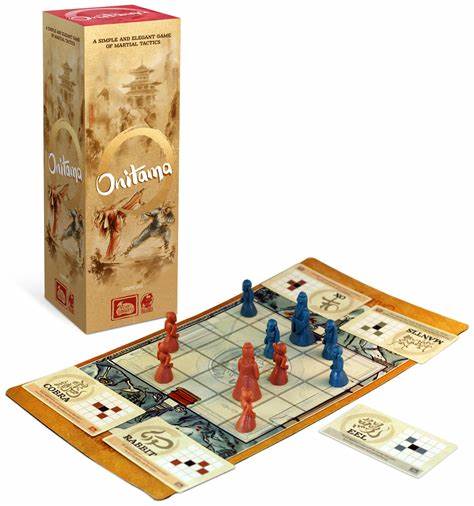
Each game of Onitama plays using only five cards from the deck, chosen randomly. These cards dictate how players can move their pieces on the board. Each player gets two cards at the start of the game, and one is set to the side. When players use one of their cards on their turn, they swap it with the one set aside. In this way play continues until the game ends. It’s a game of tug-of-war as players try to manage what cards they have, what cards their opponent has, and how the card they play on their current turn affects those two variables.
There are many variations to play right out of the box, compounded by two expansions to the game to add even more. With all I’ve played of the game, I’ve never come across the same combination of cards twice.
Shobu
The youngest game on the list, Smirk & Laughter’s Shobu is a game that looks like it’s much older than it is. The box only contains four wooden boards, a length of rope, and two sets of river stones. Each player starts with four rocks on each board with the rope between the four boards, one of each color on either side. The goal is to push all four of your opponents’ stones off one of the boards.
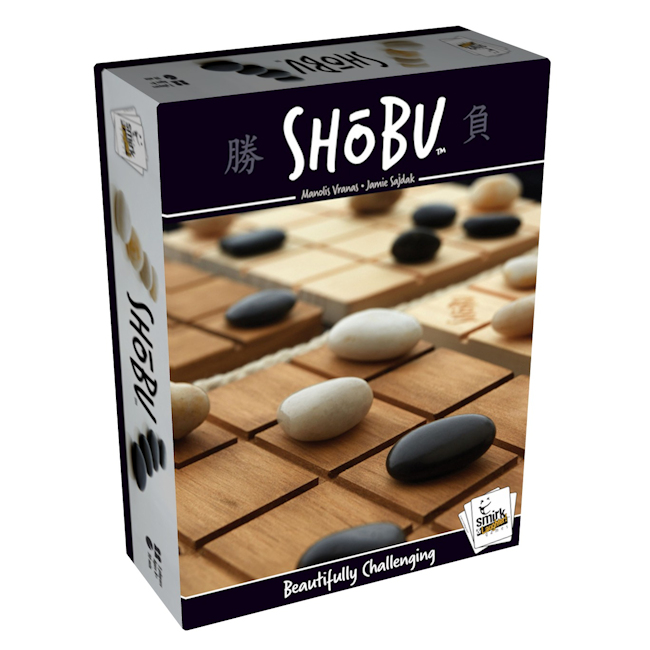
The trick to Shobu is that you take two moves on two different boards each turn. The actions are identical, but on the first move, you can’t push any stones, and the second movement takes place on an opposite color board of the first. It takes some time to wrap your brain around, but it’s incredibly satisfying when you get the hang of it. Shobu evokes the same feel of many older abstracts and most certainly should be a part of any abstract gamer’s collection.
Pai Sho
Another game based on a fictional title, Pai Sho comes from Avatar: The Last Airbender. Unlike Tak which was professionally designed with the help of the original creator, Pai Sho has had several variants of it created by the Avatar fandom. The most notable of these is Scud Pai Sho.

Pai Sho is a bit harder to get into because different rule sets use different tiles. My suggestion would be to grab everything you need to play Scud Pai Sho from their site and pick up various other tiles you may need as you go. Scud provides an excellent experience while also providing a depot for all your different Pai Sho related needs. You can even download a print-and-play set so you can play the game for free.
These five abstracts are certainly worth your time and money, each with a long-lasting appeal to last through years of play. Honestly, it’s pretty hard for me to pick a favorite out of the bunch, as each scratches a different itch when it comes to what I love about abstract games.